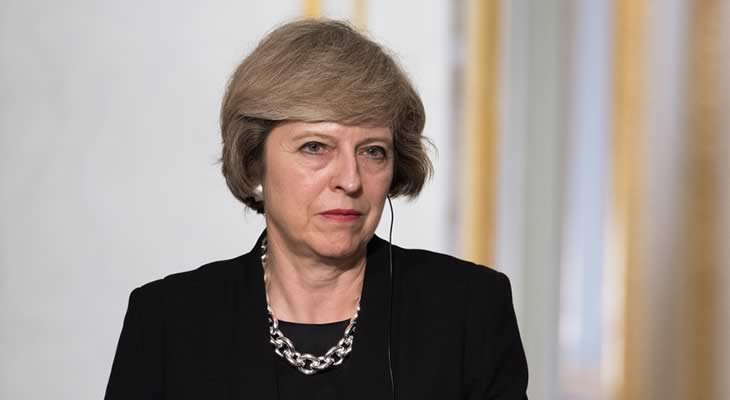Euro to Pound Exchange Rate Jumps as UK Prime Minister’s Brexit Plans Criticised
Despite the Pound’s (GBP) stronger performance for most of the week, the Euro to Pound Sterling (EUR/GBP) exchange rate quickly recovered its weekly losses and advanced on Friday in response to the latest Brexit developments.
Since opening this week at the level of 0.8898, EUR/GBP has spent most of the week trending lower. On Thursday, EUR/GBP touched on a low of 0.8851, which was the lowest level for the pair in over two months.
EUR/GBP has since recovered however, and at the time of writing on Friday EUR/GBP was trending near a weekly high of 0.8930.
Underwhelming Eurozone data on Friday didn’t prevent the Euro (EUR) from climbing versus a weakened Pound.
Investors sold the Pound in reaction to news that EU leaders had rejected UK Prime Minister Theresa May’s Brexit plan. The news worsened concerns that UK-EU negotiators could run out of time to secure a good post-Brexit deal.
Euro (EUR) Exchange Rates Strength Limited by Underwhelming Eurozone Manufacturing Stats
The Euro may have seen even stronger gains versus the Pound this week, but the Euro outlook has been generally unchanged due to the latest underwhelming or mixed Eurozone data.
Demand for the Euro likely would have been even stronger if the Eurozone’s consumer confidence survey and manufacturing PMI projections for September hadn’t fallen notably short of forecasts.
Eurozone consumer confidence slumped to just -2.9 according to Thursday’s report, and Friday’s Eurozone PMI projections for September from Markit showed that manufacturing was underperforming throughout the bloc.
German manufacturing, the bloc’s most notable manufacturing print, unexpectedly fell from 55.9 to 53.7 rather than the expected 55.7. The overall Eurozone manufacturing print fell from 54.6 to 53.3, rather than the forecast 54.4
According to Chris Williamson, Markit’s Chief Economist:
‘A near stagnation of exports contributed to one of the worst months for the Eurozone economy for almost two years. Trade wars, Brexit, waning global demand (notably in the auto industry), growing risk aversion, destocking and rising political uncertainty both within the Eurozone and further afield all fuelled the slowdown in business activity.’
Pound (GBP) Exchange Rates Plunge as EU Leaders Criticise UK Government’s Brexit Plans
Investors sold the Pound on Friday, in reaction to a wide lack of faith in UK Prime Minister Theresa May’s so-called Chequers Brexit plan.
Many leaders from EU nations, including French President Emmanuel Macron, came out in criticism of May’s Brexit plan during an EU summit in Salzburg.
Tensions appeared to rise towards the end of the summit, making investors anxious that UK-EU trade negotiations could still collapse and lead to a worst-case scenario ‘no-deal Brexit’.
According to Jeremy Stretch, head of G10 Currency Strategy at Canadian Imperial Bank of Commerce, EUR/GBP may have further to climb today in reaction to the news:
‘I was surprised at the relaxed Pound reaction yesterday but against the press headlines of ‘humiliation’ and ‘ambush’ and with the weekend press likely to be unforgiving I would look for EUR/GBP to rally back toward 0.8960 today,
Beyond looking for a Pound retreat, I would expect Sterling volatility to move higher.’
Friday’s UK public sector net borrowing report did little for the Pound either, as it revealed the UK borrowing deficit was much deeper in August than expected.
Ultimately, the week’s solid UK data was brushed over on Friday as Brexit jitters took focus once again.
Euro to Pound (EUR/GBP) Exchange Rate Outlook Could Dampen Again if Brexit Negotiations Improve
As fears of a possible ‘no-deal Brexit’ rise, the Euro to Pound (EUR/GBP) exchange rate is on track to end this week higher.
Unless investors become more confident in Brexit negotiations again, the Pound is unlikely to see much rise in demand in the coming sessions either.
As September draws to an end, UK-EU negotiators are increasingly perceived to have only around a month left to reach a Brexit agreement.
If disagreements on issues like the Irish border persist and no progress is made, the Euro to Pound exchange rate could remain strong regardless of upcoming data.
Still, next week’s Eurozone confidence and inflation data could prove influential to the Euro if it surprises investors.
German business confidence will come in on Monday, with German consumer confidence following on Thursday. French business and consumer confidence will be published on Tuesday and Wednesday respectively.
Thursday and Friday could be the most influential sessions however, with German and Eurozone inflation projections for September due to be published.
If there are no major Brexit developments next week, the Euro to Pound (EUR/GBP) exchange rate may also be influenced by next Friday’s UK Gross Domestic Product (GDP) Q2 growth rate results.


Comments are closed.